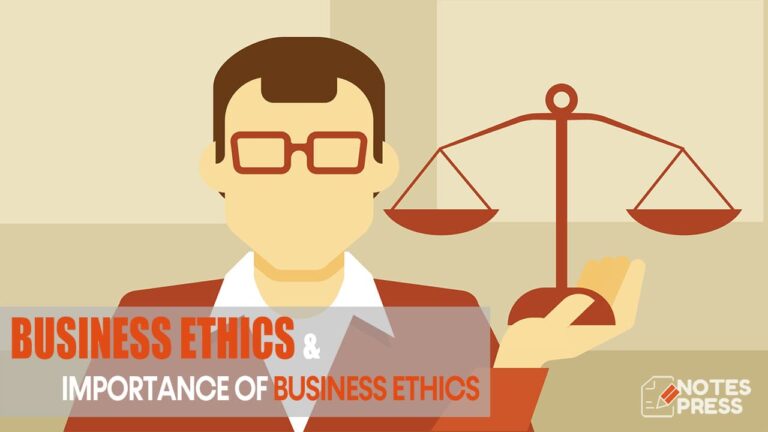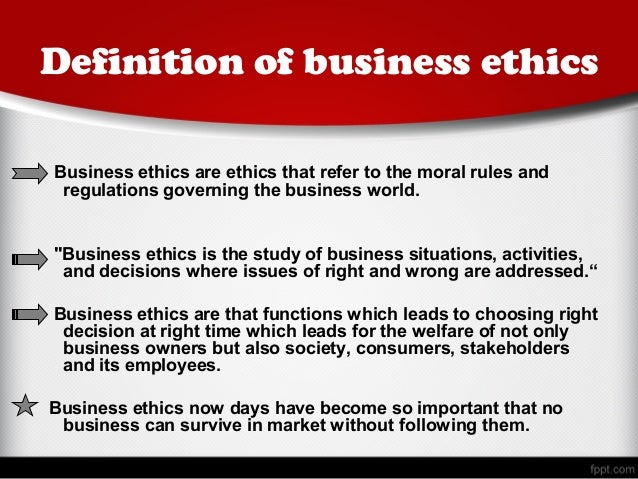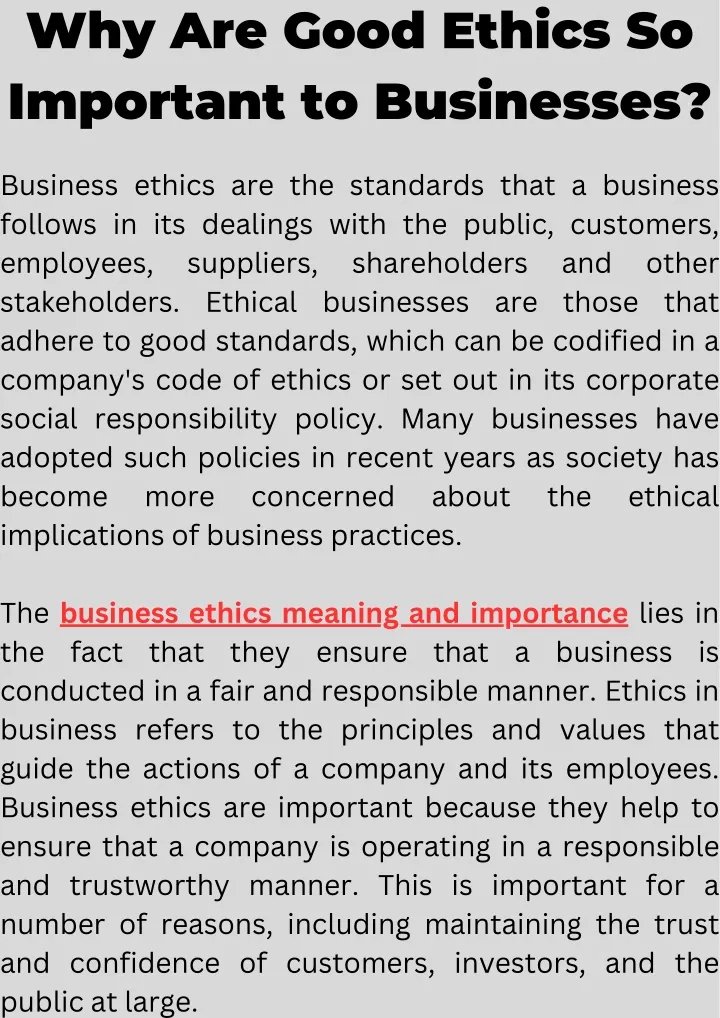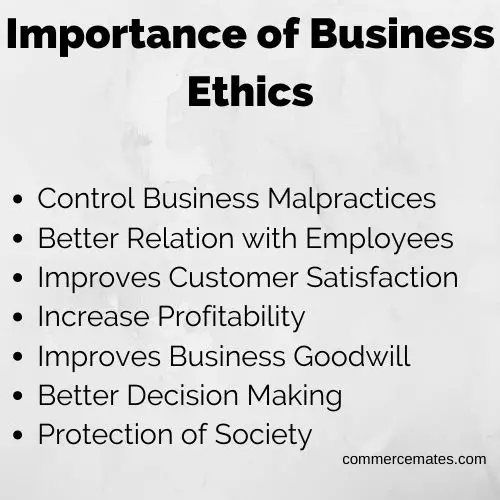Business Ethics Meaning And Importance

In an era defined by rapid globalization, technological advancements, and increasing societal expectations, the concept of business ethics has moved from a peripheral concern to a central pillar of corporate success and sustainability. Scandals involving unethical practices continue to erode public trust and inflict lasting damage on companies and their stakeholders. This heightened awareness necessitates a deeper understanding of what business ethics truly means and why it is crucial.
Business ethics is more than just following the law; it's about building a culture of integrity and responsibility within an organization. It provides a framework for ethical decision-making that prioritizes moral principles and values in all business activities. Understanding its importance is key for long-term organizational success and societal well-being.
Defining Business Ethics
Business ethics refers to the moral principles, policies, and values that govern the conduct of individuals and organizations in the business world. It encompasses a wide range of issues, including corporate governance, fair competition, social responsibility, and employee rights.
Crucially, business ethics goes beyond mere compliance with legal regulations. It involves making decisions that are not only lawful but also just, equitable, and beneficial to all stakeholders. Stakeholders include employees, customers, shareholders, suppliers, and the broader community.
It requires businesses to operate with transparency, accountability, and a commitment to upholding moral principles, even when facing difficult or competing interests.
The Importance of Business Ethics
The importance of business ethics can be viewed from multiple angles: building trust, enhancing reputation, improving employee morale, and fostering long-term sustainability.
Building Trust and Reputation
Trust is the bedrock of any successful business relationship. Companies that demonstrate a commitment to ethical behavior are more likely to earn the trust of their customers, employees, and investors.
According to the 2023 Edelman Trust Barometer, businesses are now seen as more trustworthy than governments or the media in many countries. This trust translates directly into customer loyalty, investor confidence, and a positive brand reputation.
Companies such as Patagonia, known for its commitment to environmental sustainability and ethical labor practices, have cultivated a strong brand reputation by consistently demonstrating its values.
Enhancing Employee Morale and Productivity
Ethical workplaces attract and retain talented employees. When employees believe that their company is committed to doing the right thing, they are more likely to feel engaged, motivated, and loyal.
A study by the Ethics & Compliance Initiative (ECI) found that employees in companies with strong ethical cultures are more likely to report misconduct and feel comfortable raising concerns without fear of retaliation. This creates a more open and accountable work environment.
Conversely, unethical behavior can lead to employee dissatisfaction, high turnover rates, and decreased productivity.
Fostering Long-Term Sustainability
Ethical business practices are essential for long-term sustainability. Companies that prioritize short-term profits over ethical considerations often face reputational damage, legal penalties, and a loss of stakeholder trust.
An emphasis on sustainability not only protects the environment but also strengthens a company's brand. Unilever's Sustainable Living Plan is an example of how ethics and sustainability have become core parts of a company's mission and operations.
By integrating ethical considerations into their business models, companies can create value for both shareholders and society as a whole.
Minimizing Legal and Financial Risks
Unethical business practices can lead to costly legal battles, fines, and other penalties. Volkswagen's emissions scandal, for example, resulted in billions of dollars in fines and a significant loss of brand value.
By adhering to ethical standards, businesses can minimize their legal and financial risks, and avoid damaging their reputation. A strong ethics program can help companies identify and address potential ethical issues before they escalate into major crises.
The Role of Leadership
Ethical behavior starts at the top. Leaders play a critical role in setting the tone and creating a culture of integrity within their organizations.
Leaders must demonstrate a strong commitment to ethical principles and hold themselves and their employees accountable for upholding those principles. They must also create channels for employees to report ethical concerns without fear of retaliation.
"The best way to create an ethical business environment is to lead by example," says Mary Barra, CEO of General Motors.
Challenges and Future Directions
Despite the growing recognition of the importance of business ethics, challenges remain. Globalization, technological advancements, and increasing societal expectations are creating new ethical dilemmas for businesses to navigate.
Companies must be proactive in addressing these challenges by developing comprehensive ethics programs, providing ethics training to employees, and regularly reviewing their ethical policies and practices. Furthermore, companies must foster a culture that encourages open communication and promotes ethical decision-making at all levels of the organization.
The future of business ethics will likely be shaped by increased transparency, greater stakeholder engagement, and a growing emphasis on corporate social responsibility. Businesses that embrace these trends will be best positioned to thrive in the long term.
Ultimately, the success of any business depends on its ability to build trust and maintain its ethical integrity.


:max_bytes(150000):strip_icc()/business-ethics_final-78b960a3df9a4f5b9b44b77e831323b2.jpg)















